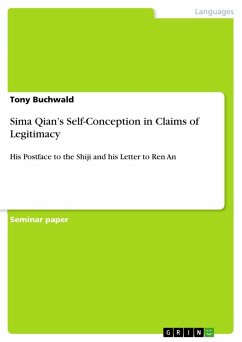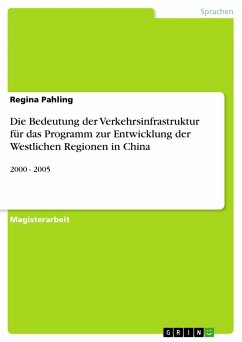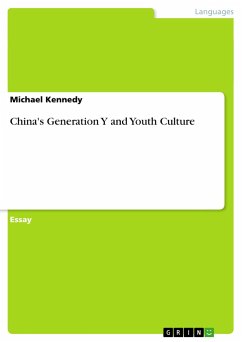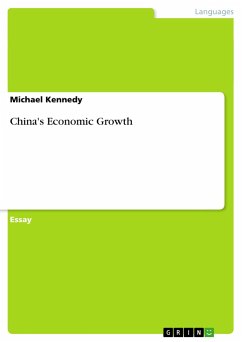Seminar paper from the year 2012 in the subject Orientalism / Sinology - Chinese / China, grade: 1,7, University of Heidelberg (Sinologisches Seminar), course: Beginnings of Chinese Historiography, language: English, abstract: What we know today of Sima Qian's (145 -90 BCE) life and especially of the way he saw himself is drawn mainly from two sources of Chinese historiography - the Records of the Grand Historian or Shiji, written by himself and his father Sima Tan (164 - 110 BCE), and the History of the Former Han or Han Shu, written by Ban Gu (32 - 92 CE) . Chapter 130 of the former, i.e. the author's postface, provides us with an autobiography of Sima Qian, whereas Ban Gu offers a biography of him in the Han Shu that is mostly copied from the Shiji's postface. Additionally, after the biography Ban Gu added a letter to Ren An, a friend of Sima Qian's, which was written as a response to Ren An's own letter to the Grand Historian. The two mentioned accounts of Sima Qian's life and his self-conception differ strongly from each other. Whereas his postface serves as a biography both for his father Sima Tan as well as his reasons for writing, or rather completing, the Shiji, his letter offers a great deal of insight into his situation at court and the way he perceived it.The purpose of this paper is to give some insight into Sima Qian's self-conception and especially into his ways of legitimising his life and work. Thus, I will argue that the reason for his Confucian agenda of self-legitimation can be found in his self-conception displayed in his letter to Ren An.
Hinweis: Dieser Artikel kann nur an eine deutsche Lieferadresse ausgeliefert werden.
Hinweis: Dieser Artikel kann nur an eine deutsche Lieferadresse ausgeliefert werden.








